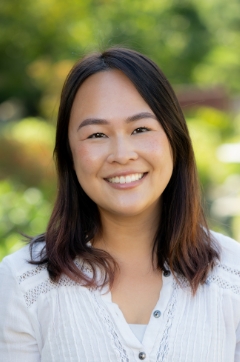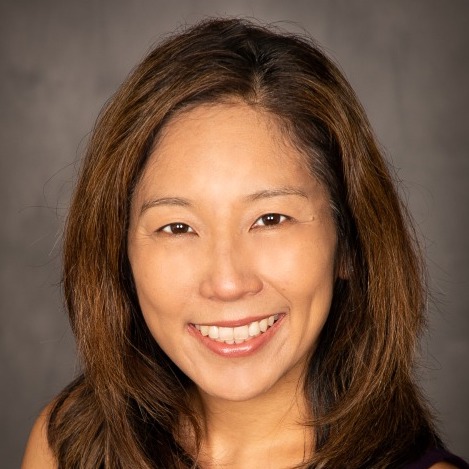
- Postgraduate Training Programs
- Chapman-Amgen Oncology Medical Affairs Fellowship
- Cedars Sinai-Chapman PGY-1 Pharmacy Practice Residency
- PGY-1 Pharmacy Residency at City of Hope-Chapman
- PGY-2 Medication-Use Safety and Policy at City of Hope-Chapman
- Fellowship & Residency Alumni
- Postgraduate Training Programs
- PGY-1 Pharmacy Residency at Chapman-SCAN-Providence
- Teaching Certificate Program
- Follow
»PGY-2 Medication-Use Safety and Policy City of Hope-Chapman University
PGY-2 Program Purpose
PGY2 residency programs build upon Doctor of Pharmacy (PharmD) education and PGY1 pharmacy residency training to develop pharmacist practitioners with knowledge, skills, and abilities as defined in the educational competency areas, goals, and objectives for advanced practice areas. Residents who successfully complete PGY2 residency programs are prepared for advanced patient care or other specialized positions, and board certification in the advanced practice area, if available.
Throughout the PGY-2 Pharmacy Residency at City of Hope-Chapman, residents will gain advanced proficiency in regulatory and accreditation requirements, clinical informatics, optimization of automation and technology, and effective formulary management. The curriculum includes an in-depth exploration of the medication-use process, empowering residents to discern system vulnerabilities, adeptly apply continuous improvement principles, and systematically measure outcomes. This comprehensive approach ensures the development of skills essential for maintaining safe and efficient clinical and operational workflows.
Graduates of the PGY-2 MUSP residency program emerge as visionary leaders with the expertise to construct innovative medication safety system solutions and drive positive change within organizations.
A general overview of the residency is available for download here.
This residency is a partnership between Chapman University and City of Hope under the leadership of Dr. Jelena Lewis, who is an Associate Professor in the Department of Pharmacy Practice, and Dr. Wyndie Tse, who serves as this residency's Program Director at City of Hope.
Admission & Application Information
The resident for the City of Hope-Chapman Medication-Use Safety and Policy Residency program is selected on a nationally competitive basis.
Requirements for Acceptance:
- Doctor of Pharmacy degree from an accredited school of pharmacy
- Must be eligible for pharmacist licensure in the state of California
- Three letters of recommendation
- Letter of intent
- Official transcripts sent directly from the school of pharmacy to PhORCAS
- Current curriculum vitae
How to Apply:
- Submit an application through PhORCAS (https://www.ashp.org/phorcas)
Why Choose the City of Hope-Chapman Medication-Use Safety and Policy Residency?
Program Overview
The City of Hope-Chapman University PGY2 Medication-Use Safety and Policy Residency accepts one candidate each year. The PGY2 resident will work under the direction of the Director, Medication Safety and Quality/Residency Program Director to:
- Critically evaluate and identify vulnerabilities in the 11 elements of the medication-use
system:
- Prescribing
- Prescription Order Communication
- Product Labeling
- Product Packaging and Nomenclature
- Compounding
- Dispensing
- Distribution
- Administration
- Education
- Monitoring
- Use
- Cultivate expertise in regulatory and accreditation requirements, including Title 22 of the California Code of Regulations, Joint Commission Medication Management Standards and National Patient Safety Goals, and California Board of Pharmacy laws
- Apply performance improvement principles (e.g., Plan Do Study Act, Lean Six Sigma)
- Optimize technology and automation to support safe and efficient medication-use workflows
- Design robust drug utilization reviews and comprehensive audits to assess the medication-use system and measure improvement outcomes
- Strengthen verbal and written communication skills by developing policies, guidelines, and reports, presenting at multidisciplinary committees, and composing a research manuscript
- Lead teams and task forces focusing on safety, compliance, or quality
- Complete a Teaching Certificate through Chapman University School of Pharmacy
Practice Setting
Founded in 1913, City of Hope is a world-renowned research, patient care and educational facility recognized by U.S. News & World Report as one of “America’s Best Hospitals” for cancer treatment. We are one of a select group of National Cancer Institute-designated Comprehensive Cancer Centers and a founding member of the National Comprehensive Cancer Network.
Our Los Angeles County inpatient and ambulatory care facility is in Duarte, California. This lush 110-acre campus boasts beautiful landscapes and breathtaking views of the panoramic vistas of the Angeles National Forest. The City of Hope Los Angeles Enterprise includes an extensive network of community practice sites throughout Los Angeles, Riverside, Ventura, and San Bernardino counties.
City of Hope Orange County brings specialized cancer care and clinical trials to the region. Located on an 11-acre Irvine campus, Lennar Foundation Cancer Center is the equivalent to four football fields of cancer research and treatment, offering comprehensive oncology services and highly specialized programs. In addition, patients can also access advanced care at five regional clinics throughout Orange County and Long Beach.
The City of Hope Pharmacy Enterprise is committed to delivering best-in-class pharmaceutical care. Our reputation for groundbreaking discoveries, innovative treatments and compassionate patient care makes us an excellent place for highly motivated pharmacists interested in establishing an exceptional career in a progressive clinical setting.
CHAPMAN UNIVERSITY SCHOOL OF PHARMACY
Chapman University is the largest independent university in Orange County and a distinguished, nationally recognized institution. Located on the Harry and Diane Rinker Health Science Campus in Irvine, California, Chapman University School of Pharmacy trains student pharmacists and scientists to make a difference in people’s lives by improving human health in our local communities and around the world.
Required Learning Experiences
REQUIRED LEARNING EXPERIENCES
MEDICATION SAFETY I & II
These two learning experiences will introduce the resident to foundational concepts that will be applied to augmenting safeguards within the medication-use system.
ADULT HEMATOLOGY
The resident will focus on safety considerations in regimens used for AML, ALL, stem cell transplant, and CAR-T cell therapy. Considerations for evaluating preventability of adverse drug reactions (e.g., administration/timing of pre-medications, titration guidelines) will be highlighted.
INPATIENT OPERATIONS / CLINIC OPERATIONS
These two learning experiences focus on enhancing safety and quality within inpatient workflows and ambulatory operations. The resident will be exposed to critical drug dispensing procedures performed in the Main Pharmacy and clinic pharmacies.
COMPLIANCE AND REGULATORY
This rotation will provide an understanding of compliance with accreditation standards and regulations, including survey readiness and constructing survey response plans. The resident will design and perform audits to address compliance issues and support the hospital’s Medication Error Reduction Program (MERP). There will also be opportunities to collaborate with the department of Quality and Risk Compliance.
CLINICAL INFORMATICS
The resident will evaluate electronic health record medication builds, order sets and chemotherapy treatment plans for design improvements to maximize safety and Clinical Pathways enhancement.
AUTOMATION AND TECHNOLOGY
Safety options employed with various technologies (e.g., infusion pumps with dose error reduction software, medication barcode scanning, automated dispensing cabinets, RFID tray replenishment system) will be covered.
FORMULARY MANAGEMENT AND DRUG USE POLICY
This learning experience is centered around formulary management principles and evidence-based reviews. The resident will also formulate a strategy for handling a drug shortage and become familiar with the organization’s recall management system.
COMMUNITY CLINIC
The resident will be exposed to the unique compliance and safety issues of community infusion practice at Lennar Foundation Cancer Center.
LONGITUDINAL LEARNING EXPERIENCES
MEDICATION SAFETY LEADERSHIP
The resident will participate in various multidisciplinary committees and activities throughout the year to gain a comprehensive understanding of the medication-use process and system improvements. The resident will investigate medication events, assess severity and stage of the medication use process, and prepare monthly reports for presentation to Safe Medication Committee and P&T Committee. This longitudinal experience will also give the resident an opportunity to mentor and oversee the interns and PGY1 residents in their monthly analysis of adverse drug reactions.
RESEARCH PROJECT
The resident will complete a research project, including preparation of a manuscript and formal presentation at a departmental, institutional or regional/national professional medical meeting.
TEACHING CERTIFICATE
The resident will earn a teaching certificate through Chapman University School of Pharmacy, gaining an expanded skill set to utilize in a variety of roles as an educator, including lecturer, facilitator, and preceptor.
ELECTIVE LEARNING EXPERIENCES
Investigational Drug Services
Pharmacy Administration
Medication Use Safety Health Economics and Outcomes Research [Becton, Dickinson and Company (BD)]
Automation and Technology II [Becton, Dickinson and Company (BD)]
*Additional elective learning experiences may be developed based on the resident’s interests.Compensations and Benefits
- Competitive stipend
- Medical and dental insurance
- Vision plan
- Paid holidays and paid time off
- Assistance for continuing education and professional meetings
- Free Parking
- Wellness incentives
- Employee discounts
Frequently Asked Questions (FAQs)
Is the residency ASHP accredited?
This residency is currently in ASHP pre-candidate status. This is a professionally rewarding and exceptional collaborative opportunity to develop a new residency program for ASHP accreditation.
What is the structure of the residency?
The PGY2 residency includes several core and elective rotations varying in length from 2 to 6 weeks. Rotations will occur at both the Duarte and Irvine (Lennar Foundation Cancer Center) locations.
What types of elective learning experiences does the residency offer?
Elective experiences include investigational drug services, drug diversion, specialty pharmacy, and clinical network operations, among others. There is also a unique opportunity to collaborate with Becton Dickinson preceptors for learning experiences, such as Medication-Use Safety Health Economics and Outcomes Research.
Is participation in the teaching certificate program mandatory?
Yes, our residents are required to participate in the CUSP Teaching Certificate program and successfully accomplish all the requirements by the end of their program.
Do I have to conduct a research project?
Yes, the resident is expected to conduct a yearlong research project. Results will be presented at an appropriate professional conference and/or an executive leadership meeting.
Can I attend conferences during my residency?
The residency offers compensation for travel to either CSHP or ASHP conferences. The resident may discuss with the program director if additional support is needed.
To whom should my Letter of Intent and Letters of Recommendation be addressed?
Please address letters of intent and letters of recommendation to the Residency Selection Committee.
Current Resident

Tiffany Nguyen, PharmD
- Postgraduate Training Programs
- Chapman-Amgen Oncology Medical Affairs Fellowship
- Cedars Sinai-Chapman PGY-1 Pharmacy Practice Residency
- PGY-1 Pharmacy Residency at City of Hope-Chapman
- PGY-2 Medication-Use Safety and Policy at City of Hope-Chapman
- Fellowship & Residency Alumni
- Postgraduate Training Programs
- PGY-1 Pharmacy Residency at Chapman-SCAN-Providence
- Teaching Certificate Program
